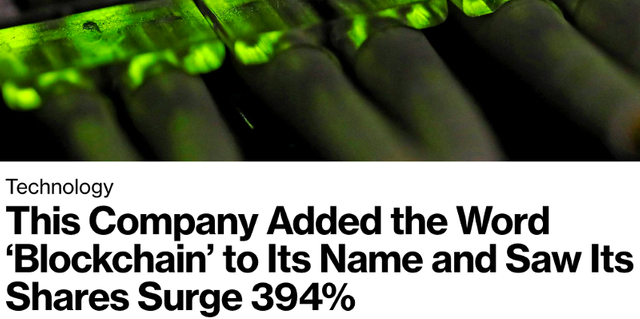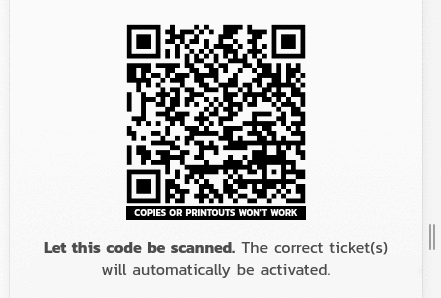FAQ - Why does ticketing need a blockchain solution?
Aren’t you just doing it to cash in on the hype? What part of the identity bound dynamic QR code needs a blockchain to work?
One of the common questions posed by newcomers when encountering the GET Protocol project is ‘Why does event ticketing need a blockchain based solution to work?’ In other words; what aspects of ticketing need an inefficient and expensive (at least at the moment of writing), slow and generally inefficient byzantine resistant database to be solved? Good question.
TLDR of the answer:
Blockchain is needed for its core beneficial aspects: transparency and accountability. The current state of the ticketing industry does not allow for a ‘local’ fix that still depends on companies and players in the industry to govern themselves or stick to some kind of moral code. There is an undeniable need for the definitive and open nature of blockchain. But don’t simply take our word for it. Take way more of our words for it, below.
Enough reasons to be skeptical
With the wild-growth of ICOs and blockchains promising more and more transactions per second, one might lose sight of the fact that a lot in the world is actually working pretty efficiently as it is. Unfortunately, companies that have nothing to do with blockchain or anything that can be solved by using it, still see a huge incentive to apply blockchain. Or at the very least to apply the word ‘blockchain’.

For the lazy, non-clickers among you. I see you.
As you can tell from that terrifying headline, it’s very attractive for companies to scream ‘blockchain’ and then cash in some good old fashioned insider trading stock earnings. This type of behaviour and press attention supports that theory from your uncle at that birthday party when he said that blockchain and crypto are all a fad and will blow over in a few years. He’s not right. But he’s also not wrong.
Just once more, what’s the problem again?
As we have established in the previous FAQ blog, the ticketing industry is riddled with mystery. The ‘black box’ effect we call it, which casts a big shadow over the earnings from tickets and the subsequent distribution of these earnings.
If you haven’t heard it yet, this episode of Freakonomics podcast does a good job of summarizing all things wrong with the event ticketing industry.
A quick summarized example: Artists put up their tickets for sale for a very carefully calculated amount, so that everyone who contributes to the show taking place (crew, venue, caterer, etcetera) can be paid accordingly. These tickets then get bought up by a bot and put on sale for three times the original price on a shady website. Fans then buy these expensive tickets and 200% of the original price ends up going to some schmuck who figured out how to make bots buy things. The fans of course don’t know the original price and are just glad that they obtained a ticket to see their favorite artist. An added bonus is that they don’t have to worry about how they’ll spend their golden years of retirement because those days will never come after spending so much money on a single ticket.
It can be assumed that there will always be actors in society that will try to game the system and use it in a way to profit from the inefficiencies created by the ticketing technology itself. The behavior of these actors isn’t the core of the problem in our belief, offering ticketing systems that take no effective measures to prevent this, however, is.
Technologies like the GET Protocol assume that there will always be actors trying to profit from a certain ticket sale. As a ticketing company, we believe it is our responsibility to ensure that our ticketing and identification technology cannot be gamed and profited upon by independent actors in the open market. The time to blame consumers of scalping tickets are over, the technology to prevent this type of profiteering behavior has come to fruition and has proven itself to be effective.
At this point I hope it is annoyingly obvious why this needs to change. If only there was some innovative form of technology that could create instant transparency and accountability to an entire industry if properly applied! Oh well, too bad… Enter blockchain, obviously.
Enough build-up, let’s cut to the chase. Why is it such a big step forward? Why can’t we just slap those fancy dynamic
QR codes on every ticket from now on and make companies promise that they won’t engage in any shady business?
Well, because they won’t keep those promises. Today’s endless list of reports of fans being duped by the very company they are paying to dupe them (I call this the dupe-loop™), should show you that they won’t. It’s an insanely competitive business and any available advantage will be taken. That’s why none must be given. That’s kind of the whole premise of our freakin’ mission.

A changing QR code locked to the identity and smartphone from the consumer. Cool feature to prevent resale! But this doesn't need a blockchain right? Is it all smoke and mirrors?
Okay sure, save the planet, that’s nice. But how exactly?
It comes down to the transparency-by-design of blockchain and the friction-less payments between consumers/actors this infrastructure provides. The value of the blockchain really comes from the inherent transparency it offers ticket holders, both in registering ownership changes but also from accounting for value flows during the primary and secondary ticket trade.
The solution to scalping brought forward by GUTS is a combination of identity/smart-phone bound event tickets that display a code that changes dependent on both time and ownership. Every minute the code changes on the smartphone ticket, thereby invalidating and nullifying the code displayed previously. This removes the ability to resell the ticket within an unregulated secondary market. If a consumer wishes to resell their ticket, the user is able to anonymously offer the ticket back for sale at the primary market. In this solution, there is no difference between the primary and secondary market. While this centralized ticketing solution is rather elegant, it is not the solution targeting the root of the problem. After all, this ticketing solution would only shift towards the ticketing company offering this service. This means that the power and data is still completely centralized. This will create another non- transparent cost/earning model, resulting in the same problems we aim to tackle in the first place.
To prevent centralization of control and data is why we have initiated the open and public blockchain protocol (GET Protocol). This public ledger registers ownership and value transfer on the blockchain. A publicly available ledger that can be accessed by anybody with an internet connection. This public and open-source protocol using the blockchain is in the end what really delivers on the core of the problem of inefficiencies in the ticketing space; centralization of data and non transparent value stream. (Black box!) Blockchain registration is public by default, by using this innovative technology
socially desirable behavior by all actors is converged upon (consumers, artists, venues and ticketing companies).
Fine. Blockchain could help bring more transparency I guess. But people aren’t gonna wait around for blockchain
transactions to clear while they miss their event.
You are absolutely right. And they won’t have to. You see, it’s a matter of how you apply blockchain technology that determines its qualifications for disruption and mass adoption. You can’t have people waiting around in a long line while you stand around waiting for verifications to clear. Besides the obvious crowd control issues, that would make this system less effective than the current way things work and it would feel like a step back. It would take too long, clog up the network and potentially cost you a lot of money in gas prices. That’s why we apply it for one clear reason: ownership.

An illustration of what waiting in line for blockchain transactions would look
like. Baaaaad.
We use blockchain to register the ownership changes of tickets. When a consumer buys a ticket and, should it be necessary, when the consumer sells their ticket. That’s it. This way the ownership of the ticket -its most important aspect- **is verified beyond mutability. **Other tools, such as the aforementioned dynamic QR code are just that: tools. While they shouldn’t be disregarded, as they are a great help in the fight against scalping, the blockchain registration is what makes the system inherently waterproof. If you look at it that way, it’s not rocket science.
Okay mister confidence. If it’s not rocket science, then what’s stopping Ticketmaster/Viagogo/Livenation from just copying your idea and doing it themselves?
The short answer? Money!
The slightly longer answer:
Doing this will make them lose a lot of income. Quarterly targets will be missed. Department heads will be fired. LinkedIn headhunters will be sent pleading messages. None of these things sound appealing to anyone there, so it will be quite chilly in hell before these companies consider opting for a fair system over beating their growth targets.
Sure, evil corporations are evil. But why don’t I just write some code, set up my own company called ‘Blockchain Tickets On The Blockchain’ and get in the honest ticketing business myself?
Go for it! We are open to competition, as mentioned plenty of times before. In fact, there are several other players in the blockchain ticketing scene, all trying to make their mark and be the first to sell every ticket. Some will make it, some won’t. Our position has always been that we want to learn by doing. It’s great to draft up a beautiful whitepaper with graphs and theoretical workings of transactions and hypothetical earnings, but having the real-world shot callers on board who actually decide where they are going to sell their tickets is a whole other ball game. Actual adoption and disruption (buzzword!) requires patience, development and plenty of failure. Getting theaters who have done things a certain way for 50+ years to try out some funky new technology is quite a tough sell. The same goes for a big festival that requires the one day of ticketing that has been worked towards for years to be 100% free of failure. Why would they risk it?
Testing. Testing. Testing.
This is the reason why many blockchain ticketing companies are using their hard-earned raised capital to create their own events: It provides them with real-life usecases for their systems. It just so happens that ‘real-life usecases’ is our middle name. Our go-to market strategy has always been: ‘Be on the market.’ We have tested, piloted, failed, adapted and grown many times over. That’s how we have ended up with a working product that is being used by a growing number of venues and artists. That groundwork is essential for our scaling efforts.
To give an example of this scaling in effect: In the last week of September of this year, 8 events will occur that we have sold tickets for, and we are selling an additional 50.000 tickets. That will be a new record for us, and the new benchmark to beat. Please excuse this humble-brag, it is solely for the purpose of giving an insight into how we are levelling up: Learning by doing.
Creating your own events to sell honest tickets provides a great way of trying out your system, but it’s a long shot from applying your system in the actual ticketing market. One could also argue it defeats the entire purpose, but one could argue a lot of things I suppose. The point is: It requires years of dedicated work to actually run a ticketing business, but we encourage everyone who has the ambitions to change the world of ticketing to try.
Okay fine. Blockchain for ticketing makes sense. But which one are you using? Have you heard of (X), what about a sidechain of (Y), and what about the (Z) update? If you choose the wrong one your entire system can be useless in a few years!
Very true. Thanks for the tips. Let’s be clear: We believe in blockchain. Currently we are using the Ethereum network, but we are closely monitoring all advancements and possibilities. It is extremely important to realize that in the grand scheme of things, it is still a brand new technology and updates and advancements are made literally daily. That’s why we are proud blockchain agnostics. In short, that means that we are not definitively married to any one type of blockchain. Our protocol is flexible and can adapt as it grows, just like blockchain technology is adapting and growing.
A more in-depth look at what we mean by ‘blockchain agnostic’ and how this works will follow in the next FAQ blog!
More about the GET Protocol
If you want know more about the GET Protocol read our whitepaper, visit the website, join our Telegram community or get yourself a smart event ticket in our sandbox environment.